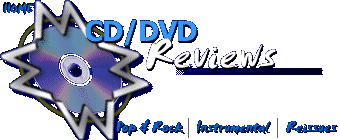 
|
||||
|
|
LIQUID MIND |
|||
|
Chuck has released two albums on the Real Music / Myndstream imprint. First was Liquid Mind XIII: Mindfulness in 2020, and, in 2021, a best-of collection called Musical Healthcare®, which included one new 12-minute track called “Healing Hands”. Taking his fans past the pandemic era, Chuck’s 2022 album, Liquid Mind XIV: Simplicity features all new music and is a most worthy addition to the Liquid Mind series of albums. Chuck has long been a proponent of the numerous healing aspects of New Age music and, in fact all good music, yet his synth-based sound is clearly inspired by 50 years of synth-based instrumental music first made popular in the early 1970s by original electronic entities such as, for example aspects of Tangerine Dream, although Liquid Mind clearly is coming from a more contemporary and curative New Age backdrop. The cover art of Liquid Mind XIV: Simplicity makes a good first impression with its sparkling design and album art. Chuck explains, “When Glen Wexler and I were discussing the cover, I emphasized it needed to be as simple as possible, and Glen suggested a circle or 3-dimensional version thereof, with some waves to represent water (liquid) … as he created the cover he got the idea to use the other two basic shapes within the CD package/PDF digital booklet, again to emphasize geometric simplicity that matches the musical / harmonic simplicity of the Liquid Mind series.” You can read about it here and here. There are really two ways to experience the music of Liquid Mind; both as meditative musical therapy to calm and relax the body and mind and also as a scenic electronic, synth-based sound, and both are equally valid. It was the late, great album producer Bruce Swedien that first encouraged Chuck to further pursue his approach to therapeutic electronic music and in a sense, with its slow-moving, glacial-like string synths sounds, Chuck’s music can also be viewed as being a kind of modern era classical music and in that way, it is also cinematic and could easily work as symphonic soundtrack music. So, if you’re into diving deep into your personal meditative headspace, Liquid Mind XIV: Simplicity is the album to go to for relaxing, mindful meditation, as well as other slow-moving therapies such as yoga.
mwe3.com presents an interview with
Chuck Wild: Music, at its best, refreshes the human spirit, it binds us together, whether we are singing in choirs like 54 million of our fellow Americans, sitting at home in private listening to meditational music, gathering with friends at a concert or live show, or playing an instrument on our own. Music is also a bridge between cultures, even if we don't speak the same language. I think the importance of music has risen because even during a pandemic, it has helped us to connect and to survive. In the case of Liquid Mind, my music is functional. Slow music has a somewhat predictable effect of making us drowsy after listening for a while, and because the music has very little rhythm, and tries to be subtle, many folks listen to relax late at night and to prepare for sleep. Our bodies try to entrain with our surroundings, and we sometimes involuntarily slow down listening to slow music. It's why I have a warning on every CD and at the LiquidMindMusic.com website to never drive or operate machinery while listening to slow music. mwe3: Your album Musical Healthcare® came out over a year ago and so I was glad to see your new album with Liquid Mind, Liquid Mind XIV: Simplicity. Can you compare the new album with both Musical Healthcare® and Liquid Mind XIII: Mindfulness? Simplicity is a very heartfelt experience. It really lives up to your sonic standards. Chuck Wild: The titles of my albums are a reflection of my own life's journey. There are 18 albums, but four of them, like Musical Healthcare, are "collections" of previous pieces. The numbered albums like the new Liquid Mind XIV: Simplicity are "studio" albums of entirely new music. Myndstream.com - the new name for the venerable Real Music label - and I choose pieces for collections from previous albums, songs that we felt represented the essence of what Liquid Mind is about. Helping folks to heal themselves, whether through meditation, or using it in healthcare situations as practitioners have done for over 30 years, in hospitals, drug rehabs, massage clinics, chemotherapy centers, pain management etc., I'm very grateful for the way my albums are being used. A full list of ways Liquid Mind has been used is here in a resource guide for healthcare practitioners.
It got me to thinking that in our hyperconnected e-world, distractions are unfortunately ever-present. As time is our most valuable asset, and in order to honor what’s important to each of us, I’ve learned to set boundaries and more carefully choose how I spend my time. mwe3: Tell us more about working with your record label. Chuck Wild: Myndstream has maintained and sharpened its healing focus to "Music designed for health & wellbeing". If you go to their home page and start scrolling down, you'll see more about it. They are owned by Cutting Edge Group, and Freddie Moross of their London headquarters is spearheading a strong healing focus as a Managing Director, located in London. You can watch this just filmed video to get an idea of their direction. Freddie recently won the Debra Simon Award for Furthering Mental Wellness at the Global Wellness Summit, where he was a speaker. Also a Forbes article if you're curious. mwe3: When did you write and record Liquid Mind XIV: Simplicity and, even though you say the album is all new music, is there a connection toyour earlier works or did you get a burst of musical inspiration as the recordings began?
Because the music is so slow, we can only work 3-4 hours on it without getting sleepy, I haven't had caffeine since 1988, so it takes several more months to complete. After completing arrangements, I record several singers singing "aaah" quietly to blend in, then the mixing begins, typically taking 8 to 10 weeks, followed by mastering at Bernie Grundman's in Hollywood. I mix on 11 sets of speakers at 3 different volumes. By the way, the BBC recently posted a story about my journey to Liquid Mind. mwe3: Are your main concerns the health and well-being of the listener as well as you own well-being when you write and record your music or do you just go with the flow and fine tune the concepts as you go forward? Is there a natural “healing essence” to the Liquid Mind sound or do you have to guide the music to that magical place? Chuck Wild: I typically get up at 4:30 or 5 AM in the morning, and on days I'm sketching/writing the music, I will meditate for 30 minutes and then sit down to work. Sometimes I go with the flow, other times I hear melodies in my head and just start playing them. I can't speak to a 'healing essence' in the music, I don't make any health claims about Liquid Mind... The music is slow and I learned from music therapists that people "entrain" to the music; whether stimulate/fast or sedative/slow.
Chuck Wild: Jonathan bought an Omnichord and came into the studio one day while I was working on a piece. I plugged it into the audio interface and asked him to play a simple repetitive phrase, which you heard at the start of "The Child In Me". That and the end of the piece is the only place that instrument is used. The rest of the music, though it sounds simple, is a combination of over a dozen sounds, a dozen or more vocal tracks; very quiet just for texture, various synths and plugins, blended smoothly to come and go, it's a very slow process. I think perhaps the next album should be called patience… lol. mwe3: Another thing I wanted to ask was about your piano solos on your website. You credit your teacher Steve Rothstein in the Simplicity liner notes as well. Can you explain the midi-renderings on the website playing the track? Would you consider releasing a piano album in the future? I saw the video for the track “Cross Your Fingers” on your website and the video created by Art101.com Chuck Wild: Yes, Steve Rothstein is a wonderful composition professor, under whom I studied at UCLA and also privately for some time. I'm forever grateful to Steve for expanding my musical horizons. Robert Thies, the legendary pianist, helped me edit the piano pieces to make them more playable, since I'm not a pianist myself. The piano compositions you mention are at the ChuckWild.com website, and the midi renderings are the computer playing the pieces since I'm not really a pianist. I freely give away the scores for anyone who wants to play them at this link: https://chuckwild.com/piano.html My friend Andy Markley at art101.com and I made the video for "Cross Your Fingers" just for fun. Perhaps when time allows we'll do some more.
I'm appreciative that they sold Real Music to an organization that also has a strong healing focus in many countries of the world. Liquid Mind is played in over 100 countries, I'm humbled and amazed. mwe3: Do you use Sibelius to compose your music pre-recording? Do you still use notation and actually write the notes? Chuck Wild: I don't use Sibelius to write music, it's not part of my creative process. In my own case, I view it as a notation program to make sheet music for my piano pieces. To be truthful, I don't have much to say about that, as my writing process is completely separated from the computerized music notation world.
Chuck Wild: Most of the vocals used were the 3 singers credited on the PDF booklet. I didn’t use many vocal “samples” and the vocals are extremely quiet almost inaudible so not really worth making a big deal out of. It’s just one of a dozen textures that are part of Liquid Mind. The rain samples were used on “A Gentle Rain In My Soul”… I auditioned over 100 rain sounds and picked the ones I felt were more gentle in this case. As you might know, there was an album called Relaxing Rain and Ocean Mixes which was a collection, but many fan asked me to revisit that with a new piece, which is why I did one piece with nature sounds mixed in. BTW, here’s the album page for Liquid Mind XIV: Simplicity at my site.
Chuck Wild: I’ve worked with Digital Performer since 1989, and I appreciate MOTU’s good tech support, and the fact that their software is very user-friendly. I think all major DAW’s (Digital Audio Workstations) are probably fine, it’s just “what you’re used to” (lol). My needs are very simple in terms of recording software, and DP has always done a good job. mwe3: You mentioned her in the CD booklet, so can you say something about working with Suzanne Doucet. How did you meet Suzanne and what music of hers would you recommend? Chuck Wild: In my opinion she is the “mother of New Age Music”, and I’m very grateful for her help in 1994-1996, mentoring me and setting up my distribution and eventually introducing me to Terence Yallop and Karen Kael at Real Music. Suzanne is perhaps the most knowledgeable consultant in the New Age world, in my opinion. Over the years, Suzanne has made some wonderful music as an artist and producer, here’s her website if you'd like to listen and learn more.
Chuck Wild: I moved out of Hollywood in 2014, it just became too crowded, too druggy, too much traffic, and as time goes on, it's not essential for me to be there for musical employment, which is often online, no. I still live in the L.A. area, there are many places, over 88 cities in L.A. that are more chilled out than Hollywood, I'm happy to say. mwe3: What are you hoping for in 2023? What will you be planning as 2023 unfolds? Chuck Wild: I have no music plans at the moment, am just hoping to take some time off to regenerate. I am an active investor, which requires some attention, in addition to my musical work. I I'd like to close with a serious warning: Please do not drive and listen to Liquid Mind. Do not operate vehicles or dangerous machinery while listening to slow music, as there is research indicating it causes slower reaction times, drowsiness, and a heightened state of suggestibility. Drive safely at all times!
|
|
|||
|
||||

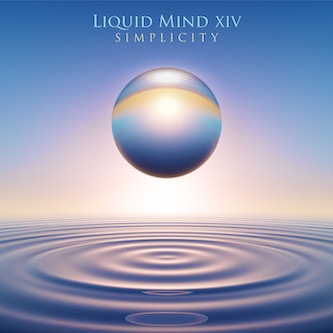 New Age music legend Chuck Wild is back in 2022 with his 18th album under the artist name Liquid Mind. Liquid Mind XIV: Simplicity continues the Liquid Mind story following the 2021 release of Liquid Mind: Musical Healthcare®. A long time artist on the legendary Real Music Records label, both Chuck and Real Music joined forces with the London-based Myndstream label in 2018.
New Age music legend Chuck Wild is back in 2022 with his 18th album under the artist name Liquid Mind. Liquid Mind XIV: Simplicity continues the Liquid Mind story following the 2021 release of Liquid Mind: Musical Healthcare®. A long time artist on the legendary Real Music Records label, both Chuck and Real Music joined forces with the London-based Myndstream label in 2018. 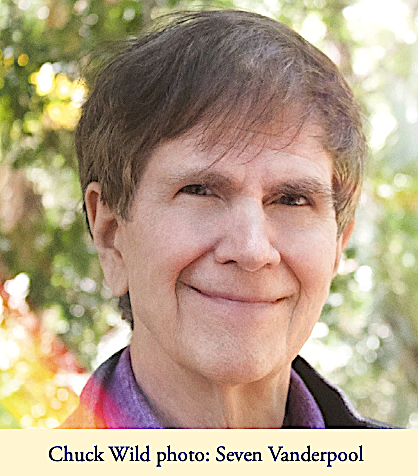 mwe3: It’s been a really stressful couple years. I remember you also said music can be very healing and, at the least, it helps us to focus on things we like.
mwe3: It’s been a really stressful couple years. I remember you also said music can be very healing and, at the least, it helps us to focus on things we like.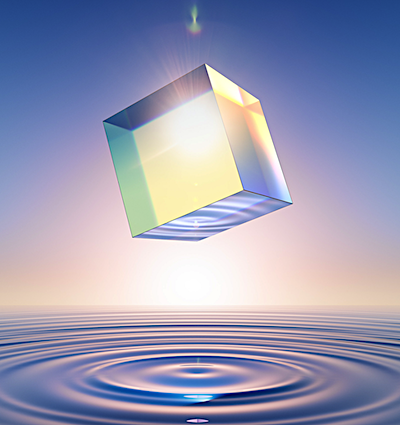 As I mentioned, the Simplicity album is all new music, what I call a "studio" album. Regarding the title, as I get older, I love the idea of "simplicity", and a
As I mentioned, the Simplicity album is all new music, what I call a "studio" album. Regarding the title, as I get older, I love the idea of "simplicity", and a  Chuck Wild: Liquid Mind XIV: Simplicity was written in 2021 and early 2022, it took about 12 months. I write forty sketches, then let them sit for 6 weeks and choose the top 7 or 8 that I like the most and complete the writing. Then the hard arranging and editing work begins with my able co-producer, Jonathan Marozik... Pictures
Chuck Wild: Liquid Mind XIV: Simplicity was written in 2021 and early 2022, it took about 12 months. I write forty sketches, then let them sit for 6 weeks and choose the top 7 or 8 that I like the most and complete the writing. Then the hard arranging and editing work begins with my able co-producer, Jonathan Marozik... Pictures 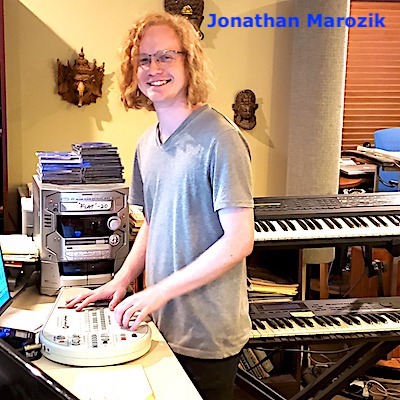 mwe3: Did you record all the music on Simplicity with one main instrument or do you feature different instruments to get the desired effect? I know you use the Omnichord featured on “The Child In Me” but how about the other album tracks? Tell us about using the Omnichord on “The Child In Me”.
mwe3: Did you record all the music on Simplicity with one main instrument or do you feature different instruments to get the desired effect? I know you use the Omnichord featured on “The Child In Me” but how about the other album tracks? Tell us about using the Omnichord on “The Child In Me”.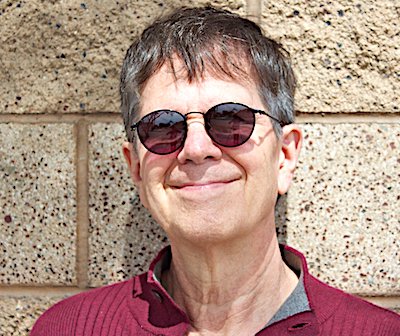 mwe3: You also have another quote from Terence Yallop in the Simplicity booklet. What are a couple of your favorite memories from the Real Music heyday and have you spoken recently with Terence or others from the original Real Music people? What are your favorite memories of the times working with Terence? I was always hoping to work further on featuring the Real Music artists and I am somewhat disappointed that I’ve lost contact with some of those original Real Music artists.
mwe3: You also have another quote from Terence Yallop in the Simplicity booklet. What are a couple of your favorite memories from the Real Music heyday and have you spoken recently with Terence or others from the original Real Music people? What are your favorite memories of the times working with Terence? I was always hoping to work further on featuring the Real Music artists and I am somewhat disappointed that I’ve lost contact with some of those original Real Music artists.


